Doctorate in the field of design research
The professorships of Design Theory and Design Research, Interface and User Experience Design and Sustainability in Design work closely together, but with different focal points, on practice-oriented and empirical-scientific research in the field of design and design science as well as transformation research and design for sustainability. An overarching interest is in socially relevant design discourses and practices. Against the backdrop of increasing digitalization, globalization and climate change, research is being conducted into answers and solutions both through design and for design. Conception, design and form-finding are central aspects of design, whose role in the design process is also being researched.
The doctoral projects of the departments include historical, contemporary and visionary studies, including projects on design as an aesthetic practice of knowledge and cognitive production, on design methods (especially in the context of participation and co-design, real laboratories), design and innovation processes, on technological change (e.g. on the interplay of sensuality and digital media) as well as on new sustainable design and consumer cultures and on questions of design criticism.
Our doctoral students work in an inter- and transdisciplinary study environment with subject areas relevant to them such as human-computer interaction (HCI), psychology, aesthetics, fashion or sustainability-oriented transformation research. Colloquia, seminars and symposia are developed in cooperation with internationally renowned institutions such as the Academy of Fine Arts Vienna and the Wuppertal Institute for Climate, Environment and Energy.
The doctoral committee is appointed by the doctoral committee - further information and the current doctoral regulations can be found here:
Doctoral degree regulations Doctoral committee
If you are interested in pursuing a doctorate in this field and would like to contact us, please use the following guidelines as a guide. The first step towards a doctorate is usually to contact potential supervising professors. For this purpose, please send us an exposé by e-mail that meets the following requirements:
- Outline of the research area
- Argumentation of the relevance of the topic
- Presentation of the research question(s)
- Literature review and theoretical connection
- Overview of the possible research methods
- Overview of possible projects that will be realized as part of the doctorate
- Overview of possible publications (conferences, journals) that will be pursued in interim publications
- Time schedule
- Total length: approx. 10 pages
Ongoing promotions
MICHAEL JANZER:
SOCIO-POLITICAL DESIGN DISCOURSES
SIMILARITIES, PARALLELS AND DIFFERENCES IN SOCIO-POLITICAL DESIGN DISCOURSES IN THE FEDERAL REPUBLIC IN THE 1970S AND AFTER THE TURN OF THE MILLENNIUM
"Much of what we are discussing today and what we have as knowledge was already available to us at the beginning of the 1970s," remarks Mateo Kries, Director of the Vitra Design Museum, in view of the overall social issues that are currently of renewed interest in design discourses. His observation, which he describes in the documentary Design is never innocent (2021), is shared by many authors from the design field. What has changed in the socio-political design discourses of the 1970s compared to the corresponding discourses after the turn of the millennium? What similarities, parallels and differences can be identified in product design in the Federal Republic of Germany during these periods?
The complexity of the situations can be captured using the mapping methods of situation analysis. The primary source corpus to date has been compiled from texts in design journals. Through this analysis of recent design history, a contribution is made to the development of design-specific values, on the basis of which current debates on sustainability can be better classified and understood.
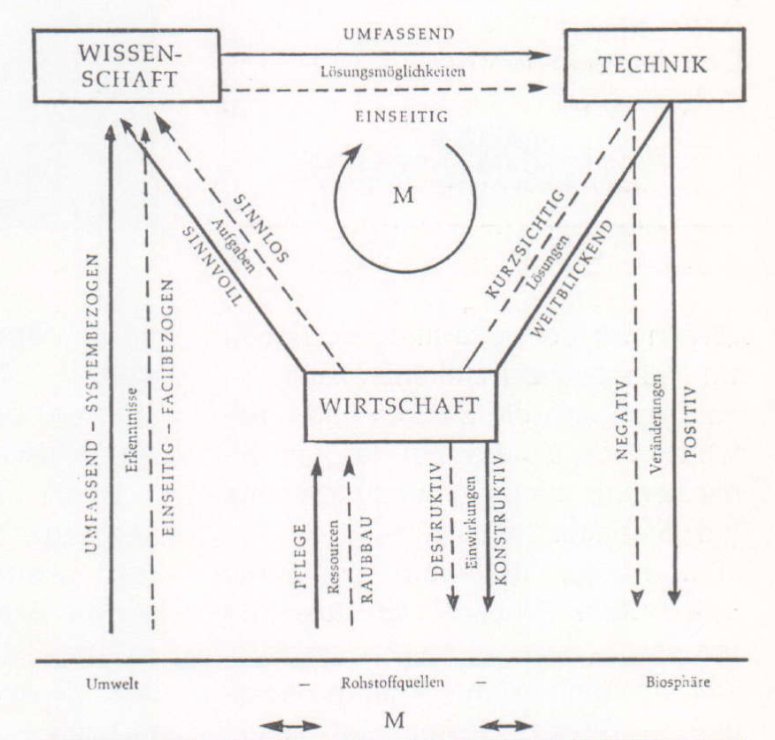
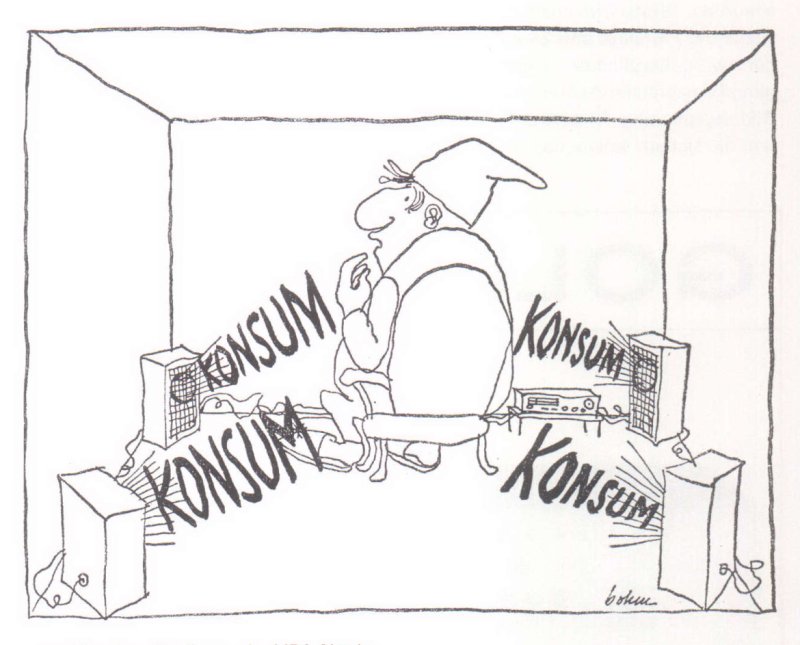
About the person
Michael Janzer is a doctoral student in the field of design theory and design research. His dissertation is supervised by Prof. Dr. Martina Fineder-Hochmayr and Prof. Dr. Elke Gaugele (Academy of Fine Arts Vienna) and supported by the BUW with a graduate scholarship. As a trained tailor, Mr. Janzer graduated with distinction in design engineering at the Niederrhein University of Applied Sciences with a thesis on the results of creativity research and their transfer to design work. He then worked internationally for over ten years as a sportswear designer for renowned brands such as adidas, Head, Jack Wolfskin and O'Neill. He taught at Reutlingen University and is currently a project assistant at Lucerne University of Applied Sciences and Arts and a lecturer at BUW.
ANN-KATHRIN HÖRRLEIN:
VISUAL-MATERIAL THINKING
The dissertation project is located in the field of epistemologies of the aesthetic and investigates design-specific thinking between propositional and non-propositional forms of knowledge. On a praxeological basis, the specifics of both implicitly embodied and explicit linguistic design knowledge are addressed theoretically and methodologically.
How designers' knowledge can be acquired, stored and communicated is examined using the photo archive of the Swiss product designer Willy Guhl, which is located in the Museum für Gestaltung Zürich. Particular attention is paid to seeing as a mode of cognition, collecting as a knowledge-generating practice and the image as a visual-sensory knowledge store and mediator.
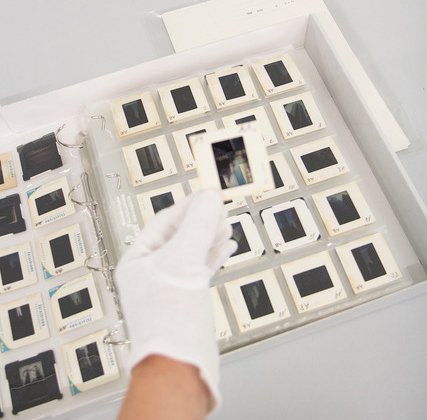
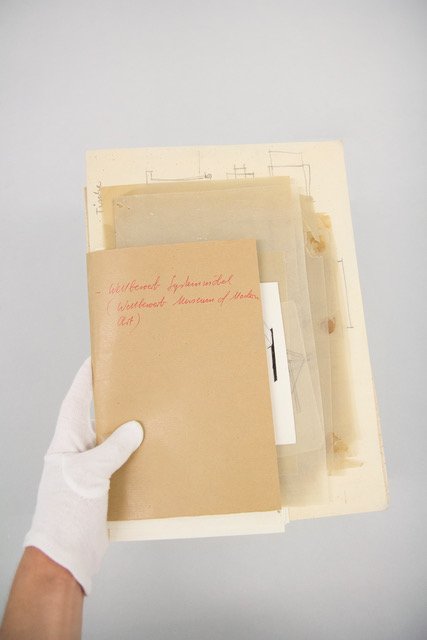
About the person
Ann-Kathrin Hörrlein studied design at the Technical University of Nuremberg and Visual Cultures at the Bauhaus University Weimar and is currently a research assistant and doctoral candidate at the Zurich University of the Arts. Her doctoral project at the Bergische Universität Wuppertal is part of the ZHdK-based research project 'Thinking with Hands - Willy Guhl's Design Practice as Applied Design Research' and is supervised by Prof. Dr. Martina Fineder-Hochmayr and Prof. Dr. Dieter Mersch. In addition to her academic work, she also works in the museum and exhibition sector.
FREDERIKE KINTSCHER-SCHMIDT:
CONTEXTUAL AND PERCEIVED SCARCITY
THE SIGNIFICANCE OF CONTEXTUAL AND PERCEIVED RESOURCE SCARCITY IN DESIGN PRACTICE FOR THE SOCIAL TRANSFORMATION TOWARDS SUSTAINABILITY
The design-theoretical dissertation project investigates the significance of contextual and perceived resource scarcity in design practice for the social transformation towards sustainability. This research project aims to expand the perspective of resource scarcity to include cultural, social and design anthropology, with the aim of improving the design competence, design culture and attitude in industrial design for a social transformation towards sustainability and presenting it accordingly for design practice. The establishment of a socio-cultural perspective on the scarcity of resources would not only strengthen attitudes and skills in and through industrial design, but also enable design knowledge to be better communicated in politics, business and society.

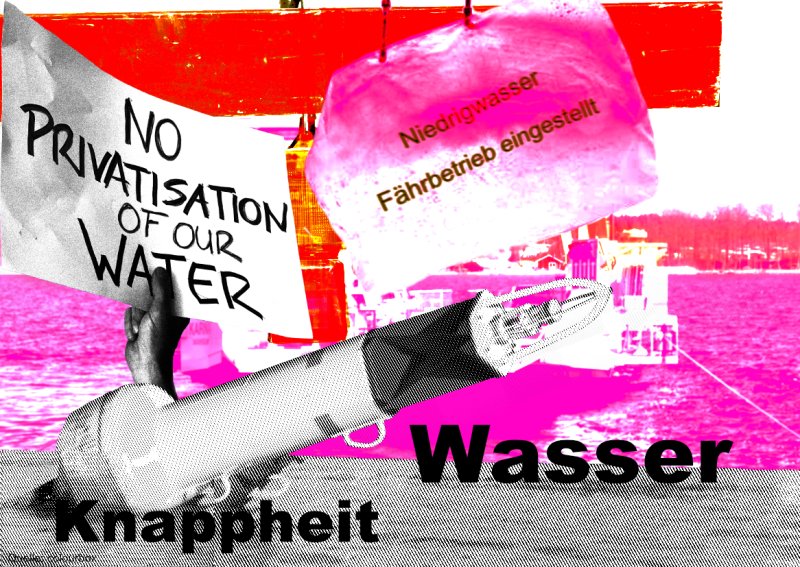
About the person
Frederike Kintscher-Schmidt studied Industrial Design at the University of Wuppertal and Product Design at the Art Center College of Design, Pasadena, CA, USA. She worked as a designer in design offices in Berlin and Los Angeles before taking over the interface management for a German publishing house as a design consultant. Her doctoral thesis on the influence of the contextual and perceived scarcity of resources on today's design process to support transformation competence in and through design is scientifically supervised by Prof. Dr. Martina Fineder-Hochmayr and Prof. Dr. Christa Liedtke. She is involved in the Association of German Industrial Designers.
MICHEL HOHENDANNER:
DIGITALE ETHIK DURCH DESIGN
APPLYING PARTICIPATORY SPECULATIVE DESIGN FOR ETHICAL-POLITICAL EDUCATION AND RESEARCH
The dissertation project explores the epistemic as well as didactic potential of design in the context of digital change and the interpersonal influence of technological applications. Participatory approaches of critical and speculative design and digital ethics are incorporated into a theory-generating empirical research approach in the course of applied design research in order to answer the central question of how we want to live together in increasingly digitalized living environments. Design practice is made accessible to a broad field of discussants in the course of deliberative formats. In this way, the ethical implications and questions that design integrates in the context of digitalization and technological applications are both brought to the attention of practitioners and brought into social discourse through the design of discussion contributions and discourse formats.
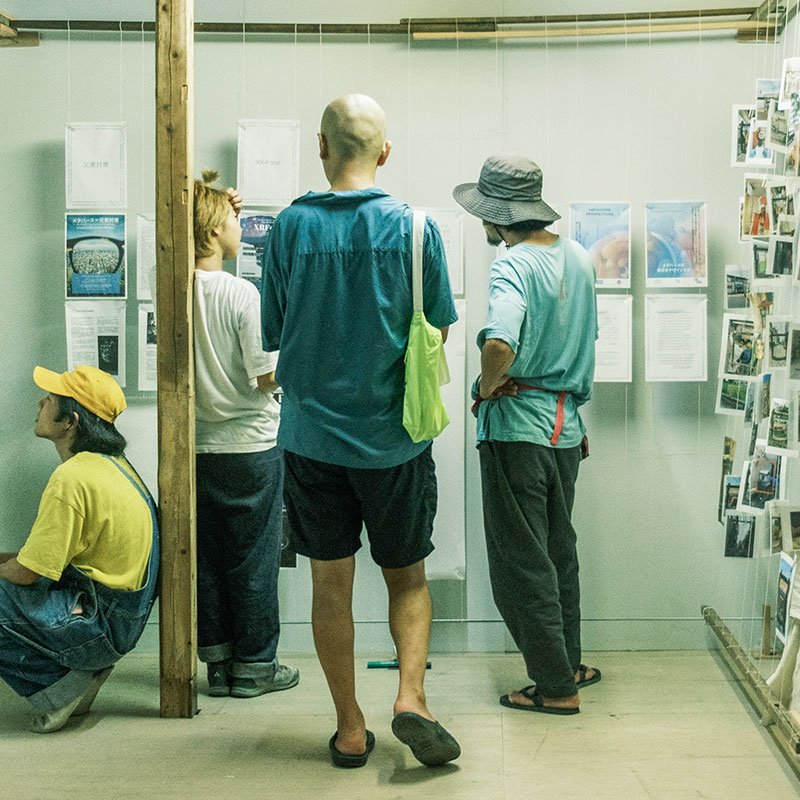
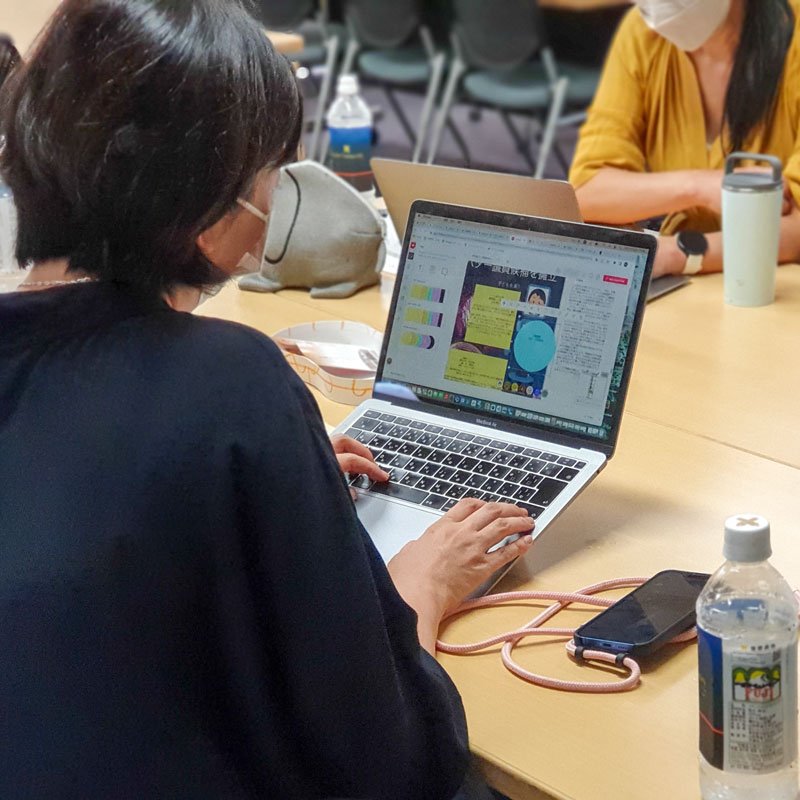
About the person
Michel Hohendanner is currently a research associate at the Munich Center for Digital Sciences and AI at the Munich University of Applied Sciences. This activity was preceded by a six-month stay as a visiting researcher at the Kyoto Design Lab of the Kyoto Institute of Technology with the research project 'Design Discourse' and a one-year engagement as a research assistant at the Institute for Digital Ethics at the Stuttgart Media University. His research interests focus on the social impact of increasingly digitalized living spaces as well as the influence of technological applications on interpersonal relationships and the role of (participatory) design in these areas of tension. His doctoral project at the University of Wuppertal is being supervised by Prof. Dr. Martina Fineder-Hochmayr.
FELIX FASTENRATH:
SOCIO-ECOLOGICAL DESIGN
MAKING ECOLOGICAL SUSTAINABILITY MORE SOCIALLY JUST
As sustainability gradually becomes a social imperative, it seems that the perceived sustainability of designed things is becoming ever more closely linked to the status they confer on their consumers. Designers need to be aware of these characteristics and the interactions they develop with the social field. This is especially true if they want product-service systems to be made accessible to a wide audience and thereby develop a socio-ecological impact.
This dissertation project investigates how sustainability, prestige and designable properties of things and services in the logic of social fields lead to them being more or less well accepted in different social groups. How do these characteristics enable relationships and participation - or, on the contrary, do they lead to groups separating themselves from one another? This knowledge should make it possible to make the social transformation towards greater sustainability accessible to all and thus socially just.

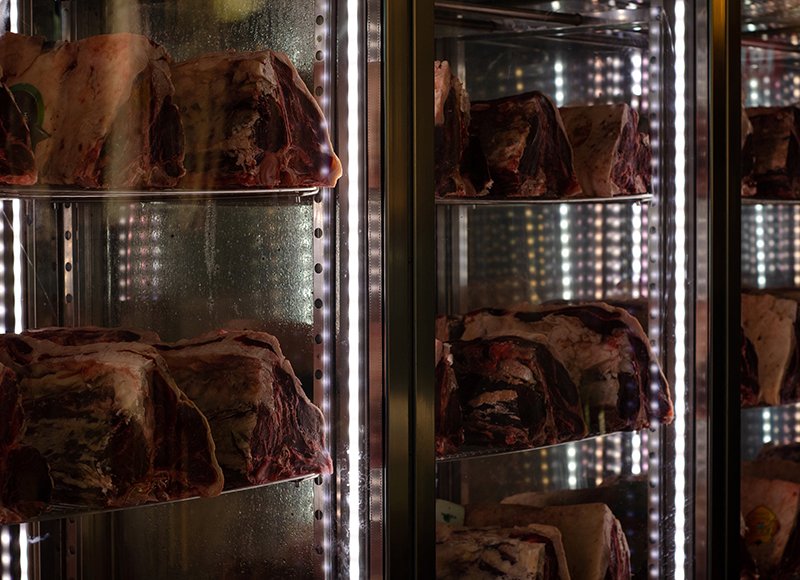
About the person
Felix Fastenrath studied Industrial Design and Strategic Product and Innovation Development in Wuppertal and Loughborough, United Kingdom. His work focuses on social and ecological sustainability. He complements this with a second degree in sociology. Since April 2022, he has been a research assistant and doctoral candidate at the Chair of Design Theory and Design Research at the University of Wuppertal. His dissertation project entitled "Design for socio-ecological transformation. Making ecological sustainability more socially just" is supervised by Prof. Dr. Martina Fineder and Prof. Dr. Christa Liedtke.
ANNA MESHCHERYAKOVA:
SPIELERISCHE ZUKUNFT
USING GAME DESIGN TO EXPLORE CREATIVITY AS A PATHWAY TO PARTICIPATION IN FUTURE-MAKING
In this dissertation, the generative possibilities of design will be used to investigate how creativity could be used to support or deepen participation in social processes to shape futures on an individual and collective level. This research will focus on playful approaches and formats that enable new, low-threshold and activating approaches to discussing or co-creating social transformation.
In accordance with the research-through-design model, design will be used as a means of knowledge production: Thus, the work will be structured along a series of generative projects that draw from the practices of social, speculative and game design and in which new tools and formats will be developed and tested.
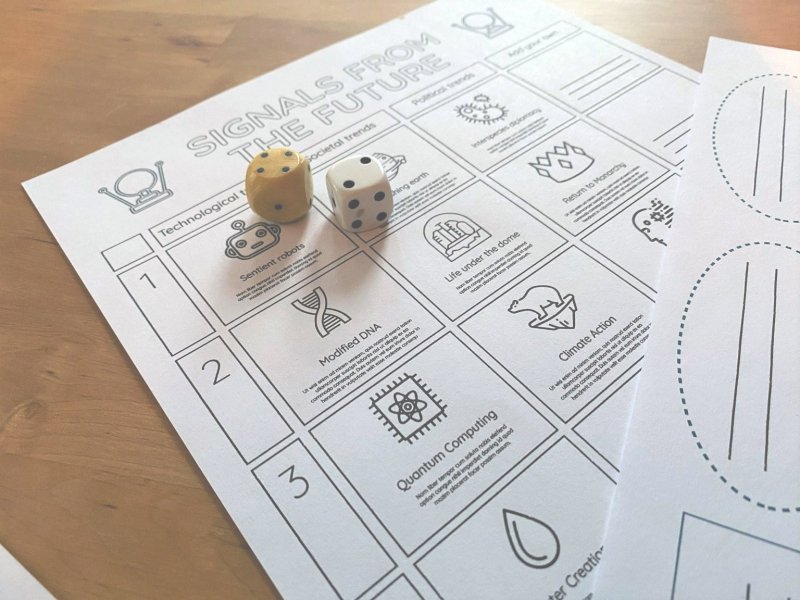
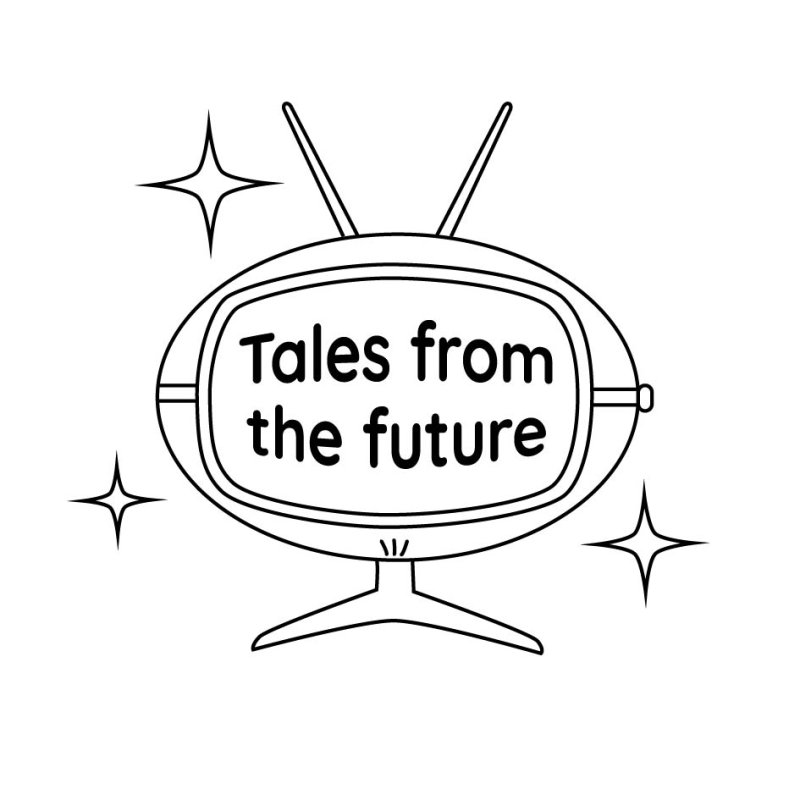
About the person
Anna Meshcheryakoya has been a research assistant and doctoral candidate in the Industrial Design department at the University of Wuppertal since 2020. She previously completed her Master's degree in Design and Innovation Management at Loughborough University London and worked in various innovation and digitalization projects. Her research interests lie in the areas of crerativity. Participation, game design and service design and are incorporated into her dissertation, which is supervised by Prof. Dr.-Ing. Fabian Hemmert and Prof. Dr. Martina Fineder-Hochmayr.
KONRAD SCHOCH:
A PRACTICAL TOOLKIT FOR REDUCING METAL WASTE
Metals are considered a material prerequisite for human civilization and human well-being. Due to their specific physical or chemical properties, almost all elements of the periodic table are used by human society today. However, their use entails various risks, e.g. metals are only available to humans to a limited extent, as mineral reserves can only be used economically to a limited extent and are ultimately finite. In addition, some metals are toxic and therefore hazardous to the environment. Metal dissipation (MD) generally characterizes the life cycle-wide loss of metals from metal-containing products. The phenomenon is exacerbated in particular by the product design of members of the living generation. The main cause of MD in the recycling of end-of-life products is the increasing complexity of the materials used and the increasing use of metal mixtures that are not compatible with existing metallurgical recycling processes. As a shortage of metals is already predicted for the living generation, the challenge of MD is primarily a problem from the perspective of members of future generations. Because the extent of MD is significantly influenced by today's product design decisions, designers of the living generation are considered an important target group for tools that help them i) design dissipatively reduced products and ii) speculate about the future impact of the metals they use in their products. The aim of this thesis is to design an appropriate toolkit for reduced metal dissipation.

